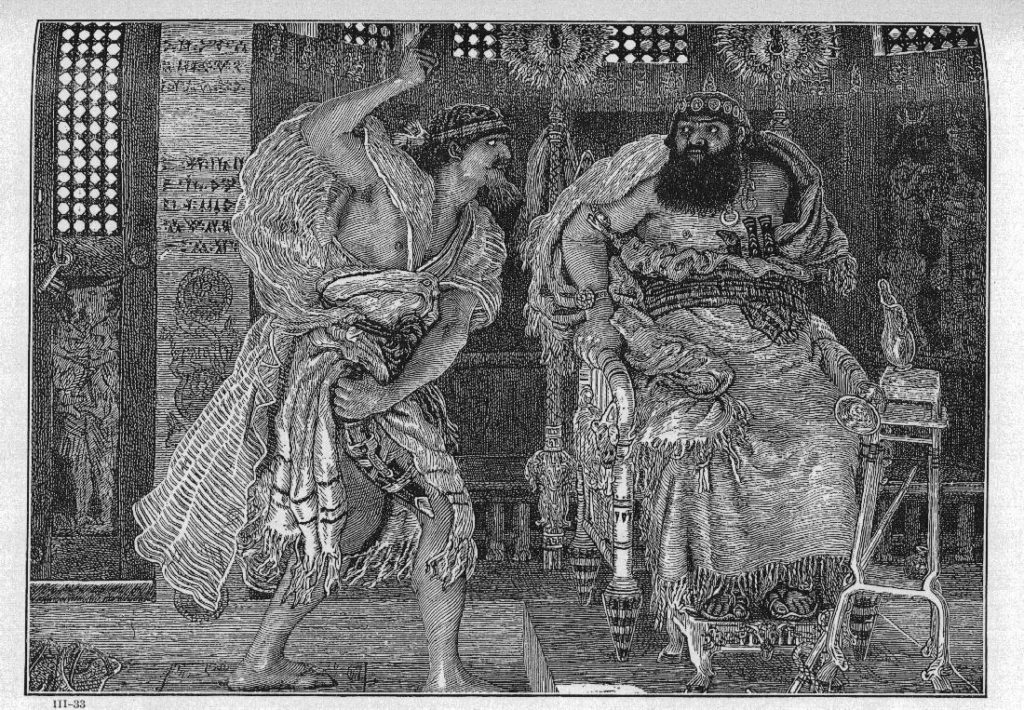Heroes
A hero is someone who rescues people from danger with acts of courage, ingenuity and strength.
If you took a casual look at the Old Testament, you might have been tempted to gloss over a book called Judges.
Why would you want to spend time reading about stuffy men who decided court cases?
However, the book of Judges is a book pulsating with action, blood and gore. It’s about God raising up heroes to deliver the nation of Israel from her enemies.
These heroes were known as judges. They were renown for their military leadership, administrative ability and spiritual discernment.
Here is a fictionalized account of one such hero named Ehud, a left-handed man from the tribe of Benjamin.
Read Judges 3:15-26
“Son, you mustn’t strike your brother so hard. You could’ve broken his nose.” Gera ruffled the top of his son’s thick black curls.
“Maybe it’ll teach him to stop calling me a retard and a lefty,” Ehud said, smiling slyly. He scratched his chin where the hairs itched. At fifteen years of age, he was already cultivating a beard.
“Son, it’s no excuse to start a fight with your brother. Besides, he’s younger than you.”
“Only by a year,” Ehud moaned. He flexed his chest muscles, alternating between his left and right pecks, causing his upper torso to dance.
Gera shook his head and rolled his eyes at his son’s antics. “Being left-handed doesn’t mean you can start up a rumble with him to get out of doing your chores.” He pushed his son in the direction of their tent. “Now, get in there and see what your mother wants you to do.”
Ehud dragged his feet. Like most teenage boys, he found household chores boring.
His father, Gera, had warned all of his son’s not to even look at Moabite women. “I will disinherit you and then gouge your eyes out,” his father would say. Ehud couldn’t tell if his dad was joking or not.
***
Eighteen years had passed and still God’s people were under Moabite rule.
Every night Ehud would gather his family together for evening prayer. Like many other faithful followers of the one true God, they would pray to the Lord to send someone to rescue them.
The Moabites were wicked, so wicked that they would offer up their own babies to be burned to their idols of stone.
Ehud had been training with the other military men in his tribe for twelve years now, practicing with the standard sickle sword.
With his left hand he whipped it in the air in deft strokes, it’s curved edge glinting in the sun. Concealing this weapon would be difficult, it’s shape and size too awkward.

When he wasn’t training, Ehud’s thoughts turned to designing a better weapon that he could use to thrust into the enemy, rather than using a chopping action with a sickle sword.
In his spare hours, Ehud fashioned a sword with a double-edge, about a foot and a half long. A dagger sleek and easy to hide, which he could strap to his right thigh, under his clothing.
***
The time had come for the nation of Israel to pay tribute to her oppressor.
With military precision, Ehud led a caravan of over one hundred men with beasts of burden carrying silver and gold. These along with livestock and produce were taxes that needed to be paid to the Moabite king.
The air was filled with the sound of sheep and goats bleating as shepherds called out to stay with the pack. Cattle lumbered along, while donkeys carried sheafs of Israel’s finest wheat and barley.
By the time his caravan reached Jericho, Ehud felt a renewed sense of vigor rise within him.
The palm trees rocked gently to a soft breeze.
Silently, he cried out to the Lord. Give me strength O’Lord to do your will. Deliver your people from the wickedness of Moab.
The Moabite guards met the Israelites at the inspection point, roughly searching each man’s left-side where a sword would normally be found, just as Ehud predicted. None of the guards even suspected that he was carrying a weapon on his right side.
Ehud felt fire in his bones ignite as he and his fellow Israelites fell to their knees before the King of the Moabites.
The king was a mountain of flesh. He reminded Ehud of a fatted calf, a bull awaiting slaughter.
Ehud was glad that his people didn’t have to entertain the King for too long. With a snap of the King’s meaty fingers they were sent away, stripped of their possessions.
***
They reached Gilgal with its ugly grey stones. Bile rose in Ehud’s throat as the ugly carved idols of the Moabites stared down at him.
Ehud cried, “Men of Israel, you must return the camp. I still have urgent business with King Eglon. I must go alone.”
Doubling back to Jericho was easier in the cool of the day. The King’s guards recognized him, wearily patting him down again on his left.
Ehud whispered in one guard’s ear, “I have a confidential message for your King. Please allow me to pass. It is of the most urgent nature.”
Suspecting nothing, both guards nodded him through. Again, Ehud silently prayed for God’s strength as he stood before the Moabite King in his summer room.
Ehud’s heart banged against his ribs. At last he was alone with the enemy.
King Eglon reclined like melted wax on a seat built for more than one man. His face shone with large round beads of perspiration.
“Rise, and speak of your business here,” the King commanded.

In meekness, Ehud lifted himself off the ground, the weight of his “present” concealed on his right thigh, tugging at him.
“Oh King, I have a message from God for you.”
The King panted as he strained to get his hefty body up on both legs, leaning his ear toward Ehud.
With his left hand, Ehud seized his concealed weapon on his right thigh and plunged it into the king’s belly with all his might. The sword disappeared, completed swallowed by the King’s excess folds of fat.
An offensive odor leeched into air as the King fell face down.
Ehud locked the parlour doors and escaped through the porch.
***
Later, the King’s servants returned to attend their king and noticed the doors of the summer parlour were locked. Assuming that their master was relieving himself in his ensuite, they gave him time to do his private business.
They waited, and waited until a ridiculous amount of time had passed. Still the parlour doors were locked, so they fetched the key and entered the room to find their king dead.
Join me for Part 2 on this topic.
Bibliography
Henry, M. 1961, Commentary on the Whole Bible, Zondervan, Michigan.
Moyer, J. 2020, Weapons and Warfare in Ancient Israel, Grace Communion International. Retrieved 25 August 2020 from http://www.gci.org/articles/weapons-of-warfare-in-ancient-israel
Pfeiffer C,F. 1990, The Wycliffe Bible Commentary, Moody Publishers, Illinois.
Walton, J. 2000, The IVP Bible Background Commentary Old Testament, IVP Academic, Illinois.


